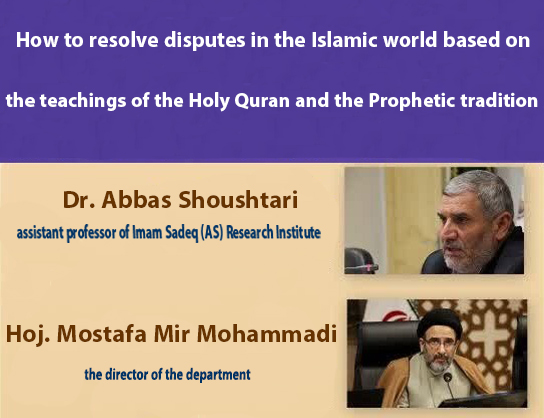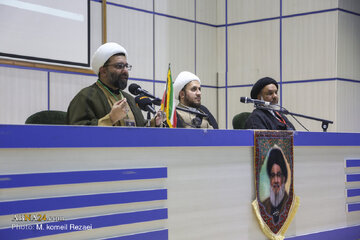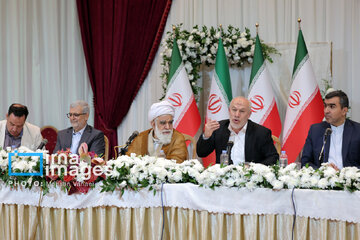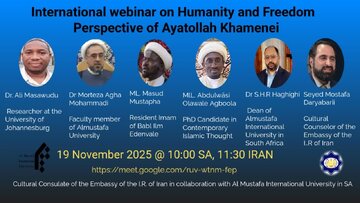AhlulBayt News Agency (ABNA): How to resolve disputes in the Islamic world based on the teachings of the Holy Quran and the Prophetic tradition, obstacles to solidarity, paying attention to Islamic teachings are some key-note discussions through a scientific webinar.
The webinar, held at the initiative of the Department of Law of Mofid University in cooperation with Center for Contemporary Islamic Studies, was kicked off by speeches delivered by Hoj. Mostafa Mir Mohammadi, the director of the department, and Dr. Abbas Shoushtari, assistant professor of Imam Sadeq (AS) Research Institute gave a speech.
Hoj. Mir Mohammadi, differentiating types of disputes, pointed to the emphasis of the Quran and the Prophetic tradition on the prohibition of war and the confrontation among Muslims. “The prohibition of war is not a very old aspect in international documents, while in the enlightened teachings of Islam it is as old as the Prophetic rule.”
Advising Muslim states, he considered focusing on commonalities of all Islamic groups as the best way to handle political disputes.
“These political solutions can be based on negotiation, reconciliation and mediation, examples of which are numerous in the prophetic tradition, and in the next level, legal solutions can also be considered,” he commented.
According to Mir Mohammadi, the unresolved problems of the Islamic world are due to the lack of unity between Islamic countries and attention to the teachings of Islam, and in some cases instead of convergence and use of existing potentials, Islamic countries are faced with difficult options such as war or the mediation of non-Muslims.
He underscored that studies in this field should be one of the priorities of centers such as Razavi University of Islamic Sciences. “Students of this university should take steps to solve the problems of the Islamic world on a larger scale.”
Dr. Shoushtari also presented documents from the Quran and the Prophetic tradition in resolving disputes between Islamic countries, and explained a number of methods for dispute settlement.
He pointed to the do’s and don’ts in resolving conflicts in the contemporary world, speaking about the obstacles that affect conflict resolution and dispute settlement.
................................
End/ 257
8 November 2021 - 06:29
News ID: 1196593

How to resolve disputes in the Islamic world based on the teachings of the Holy Quran and the Prophetic tradition, obstacles to solidarity, paying attention to Islamic teachings are some key-note discussions through a scientific webinar.




